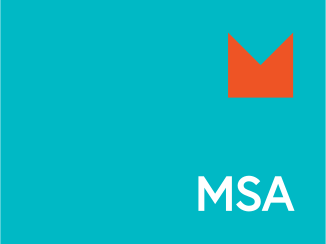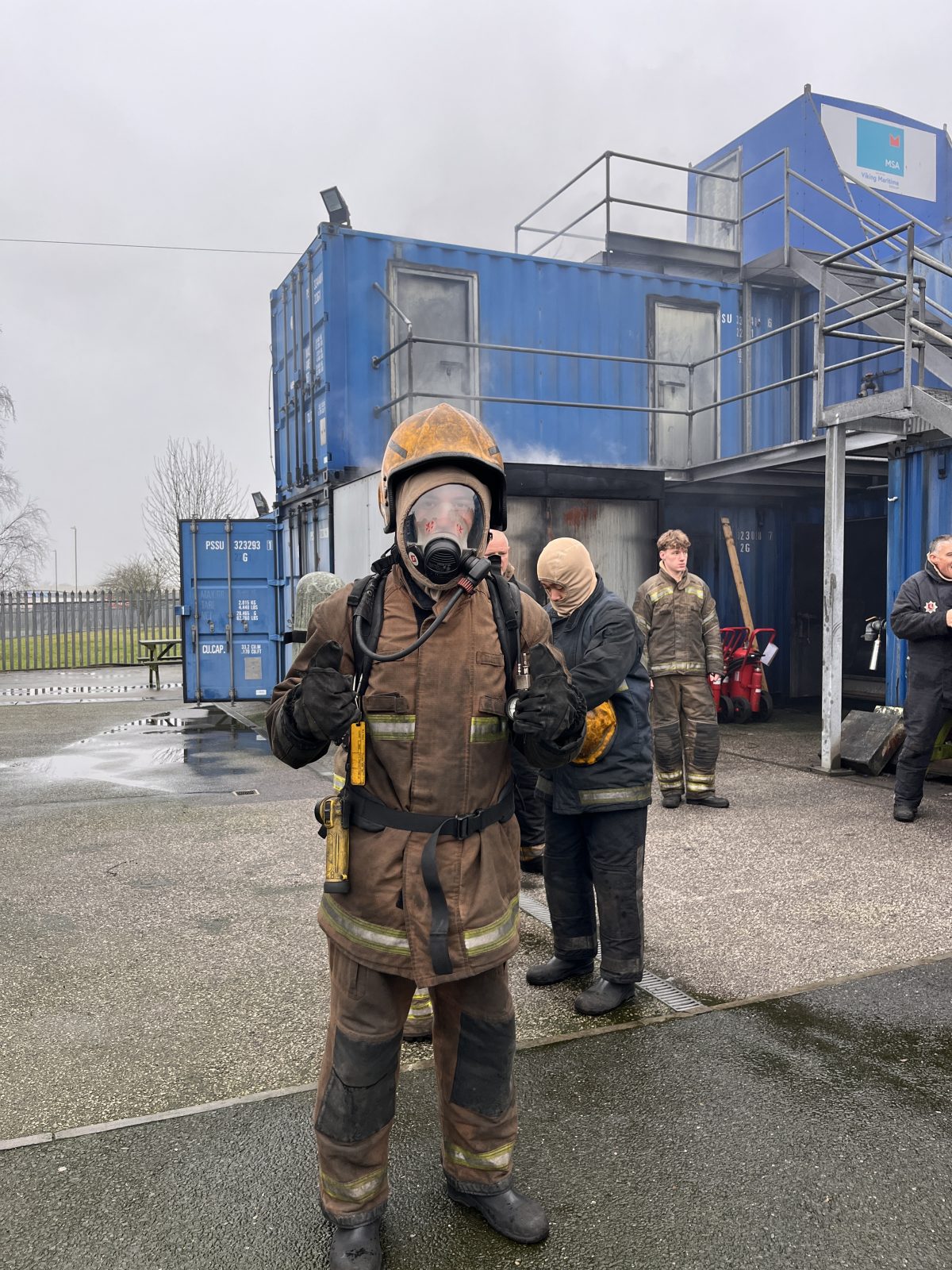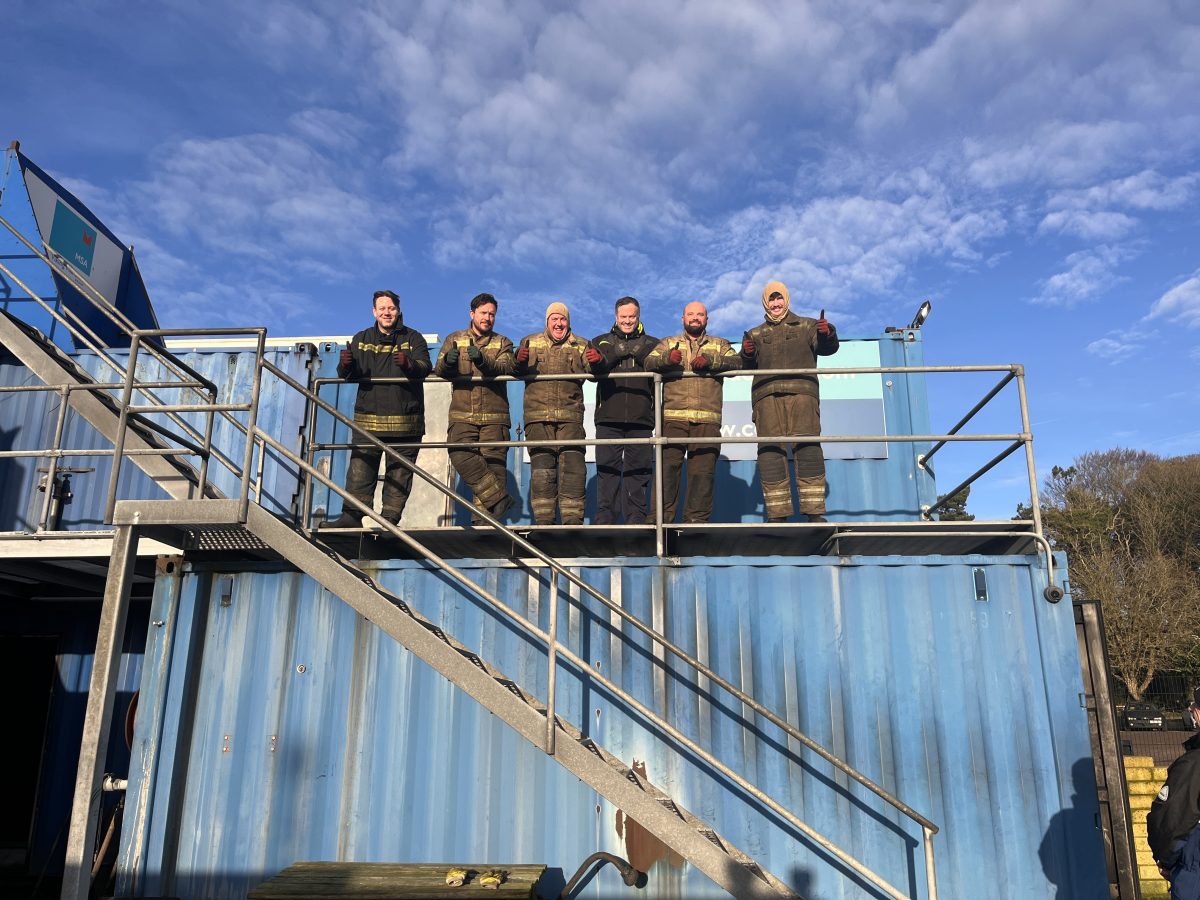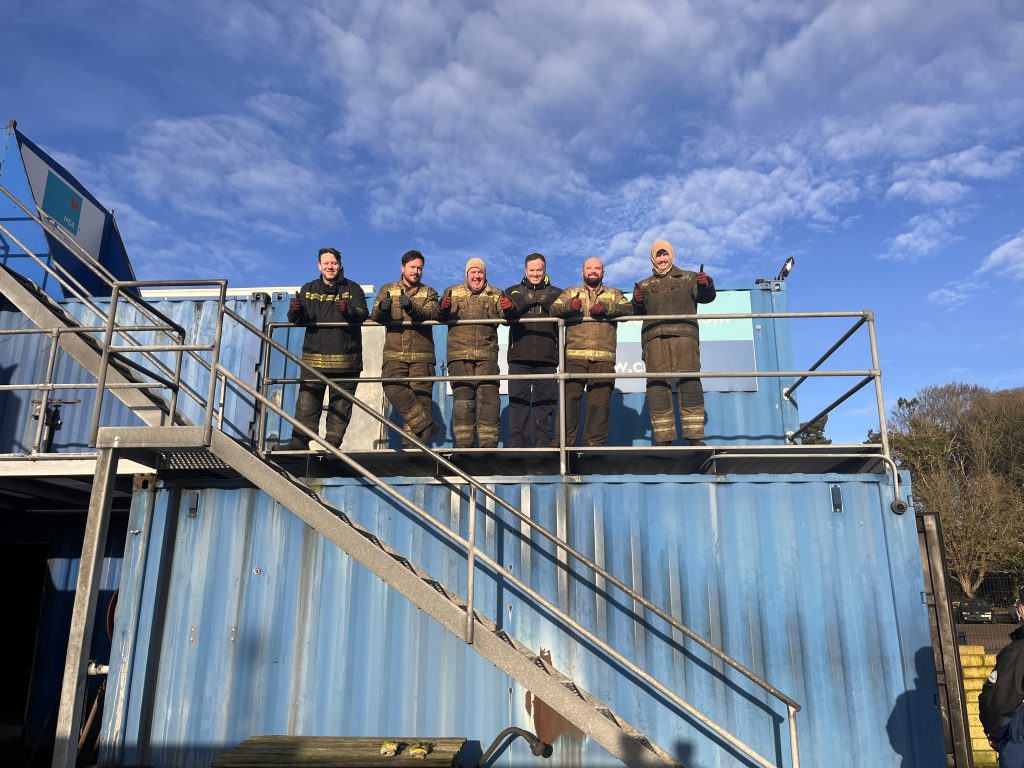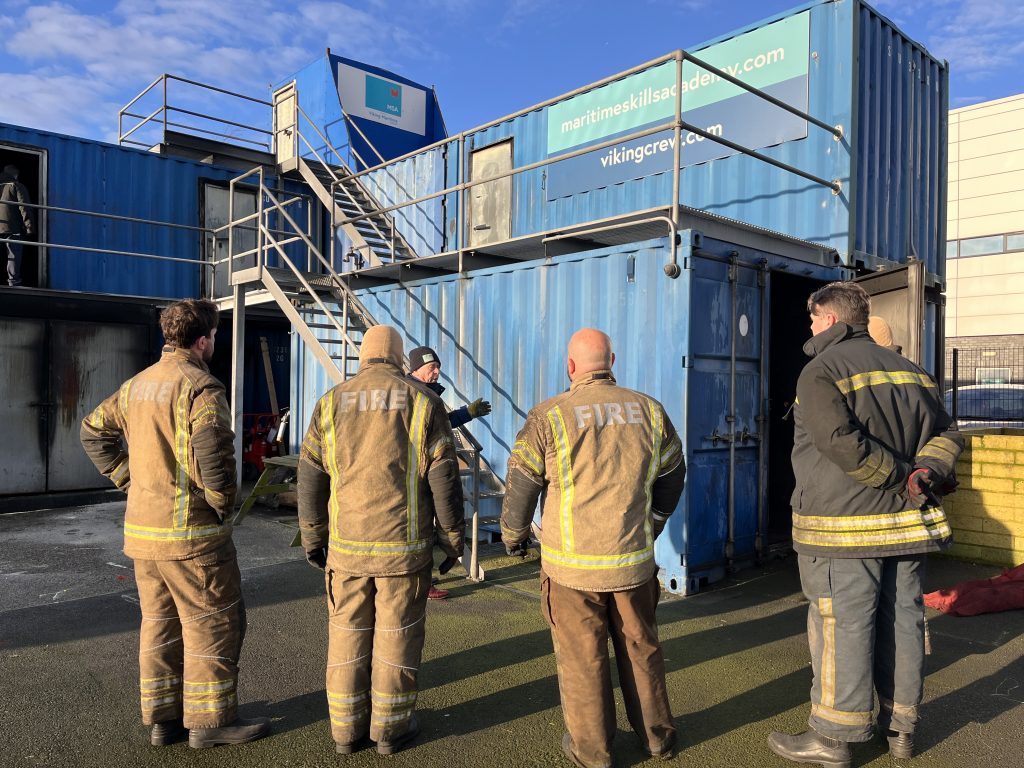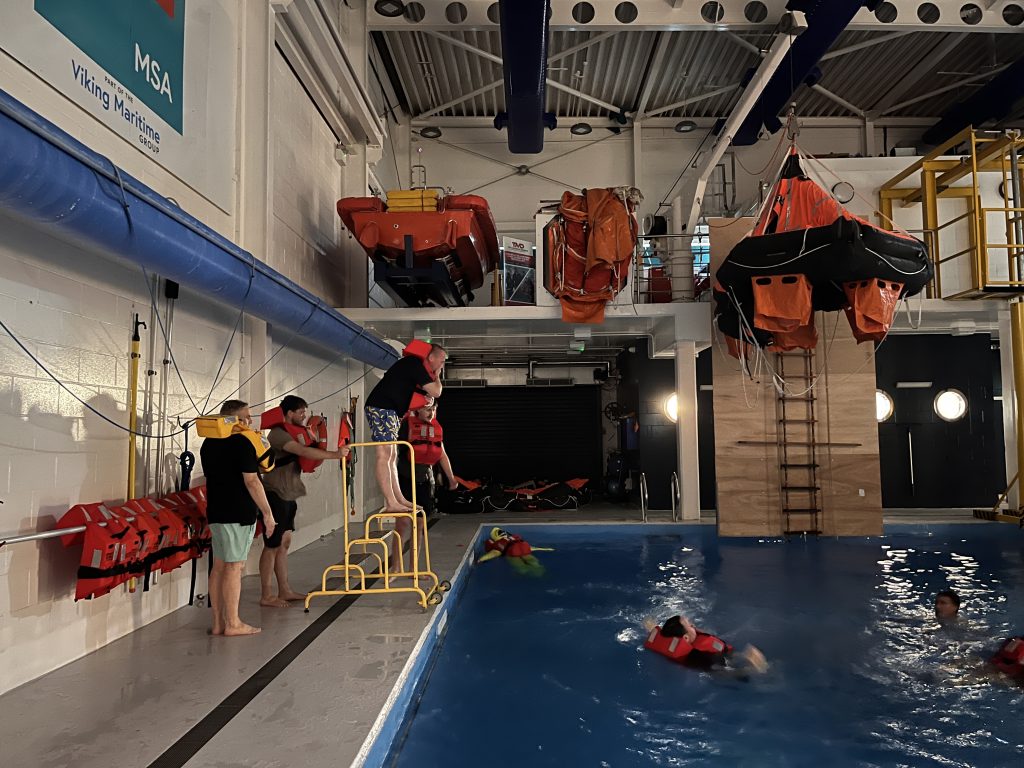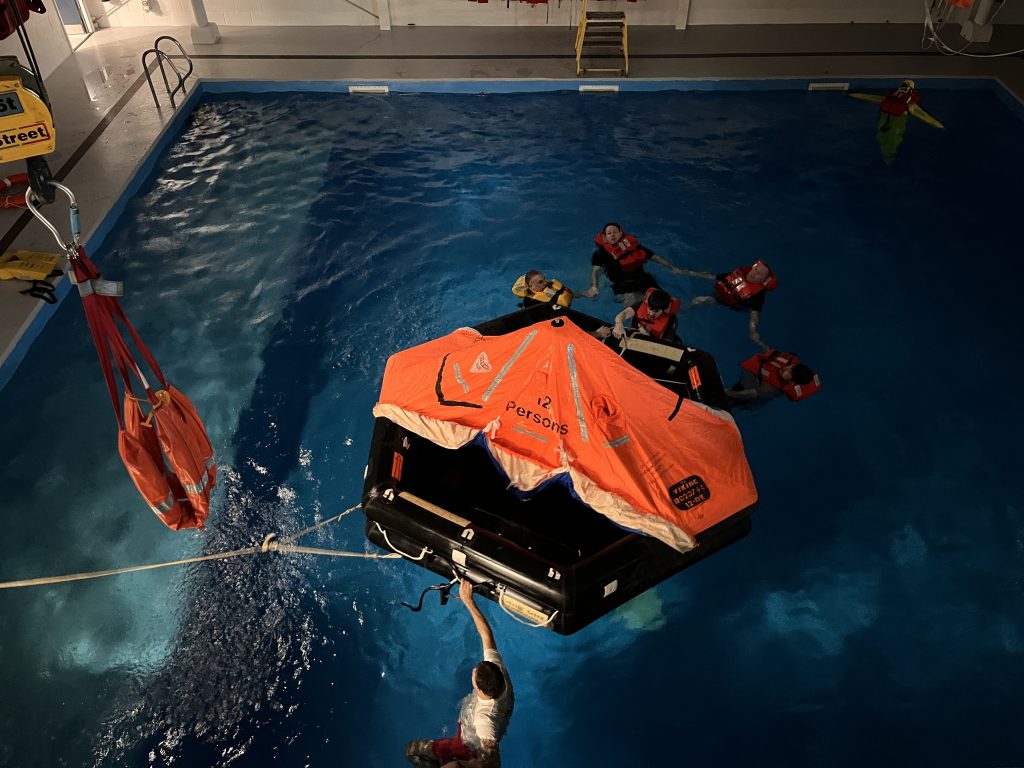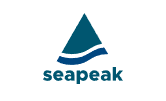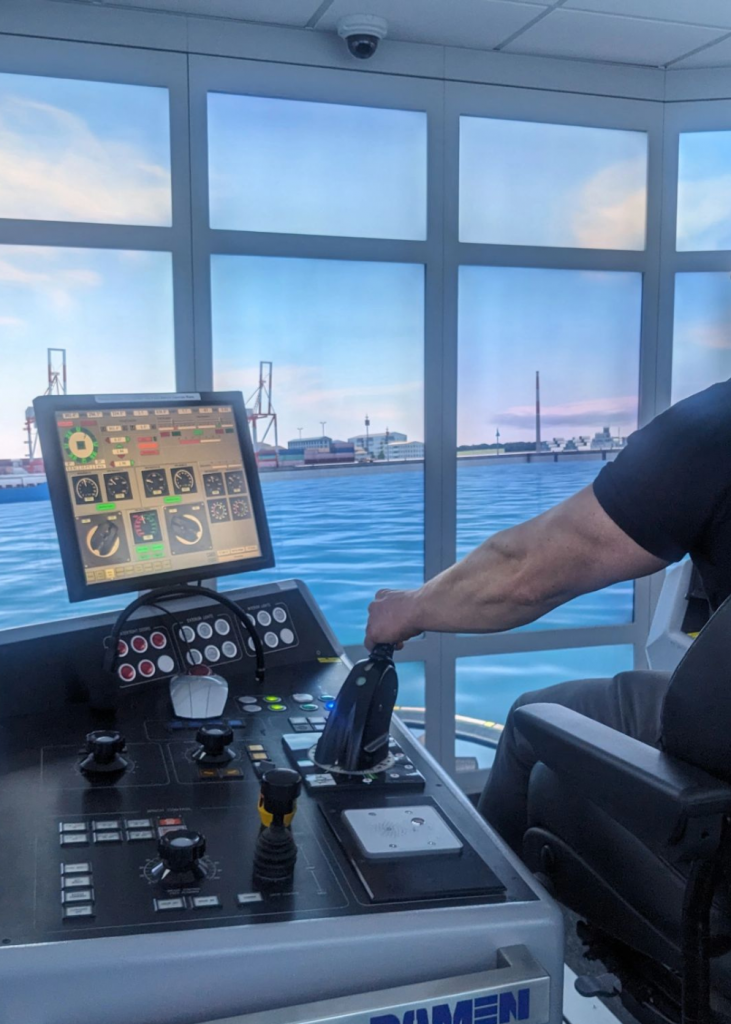The Maritime Skills Academy (MSA) recently welcomed Finley Reeves to complete his 4-Part STCW Basic Safety Training. Finley, who turned 18 during his training week, is currently studying on a Football Scholarship and travelled from Tamworth to our centre in Dover to complete his training as he was exploring options for a potential career at sea.
We followed his week at our state-of-the-art centre and interviewed him after five days of training to see how he’d gotten on.
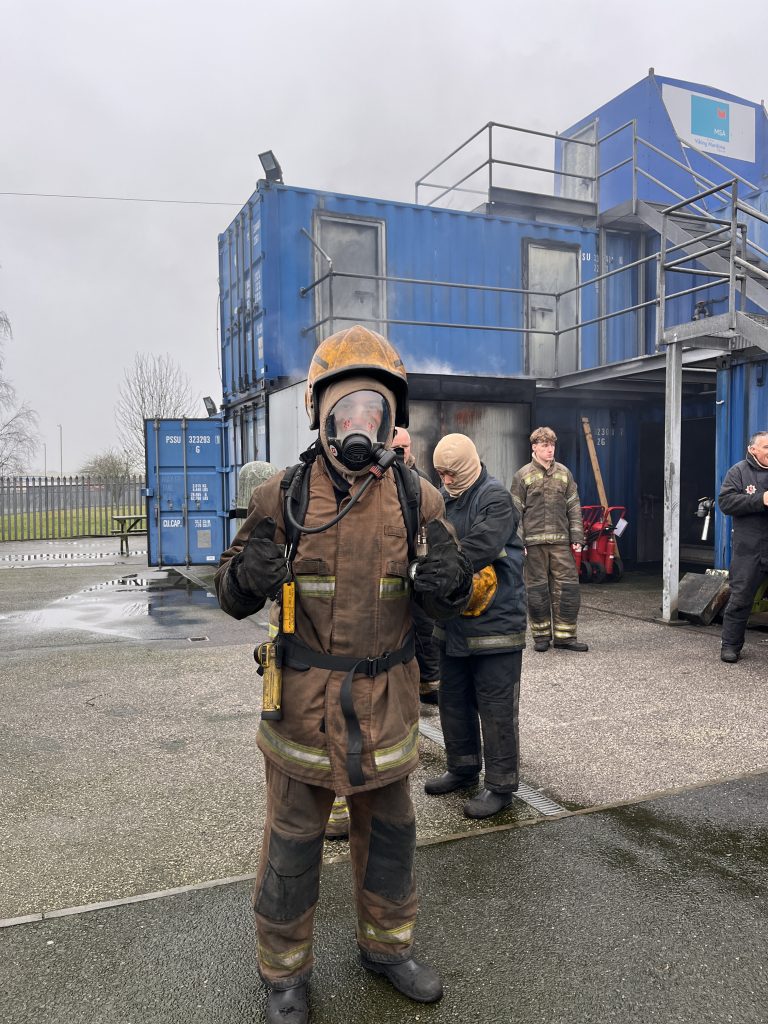
What inspired you to book training courses at the MSA?
I’ve always been in love with football, but sometimes you do have to move on. This course will open up opportunities for me to travel and explore. I think it’s important to look at what else is out there, and when there are opportunities to do things like this, you have to do them.
Which element of the week did you enjoy the most?
My favourite element was the second day of Fire Prevention and Firefighting. I’d never done anything like that before, and although you don’t know what you’re doing, you’ve got people around you who will make sure that you do know what you’re doing.
We were fully fitted in PPE with a breathing apparatus set and oxygen cylinder that we carried on our backs while we worked together as a team to identify a casualty and safely carry them out of the container. That was my favourite day.
The staff and instructors’ help made the experience enjoyable because it didn’t seem like a training course. I looked forward to each day as they were each a proper experience.
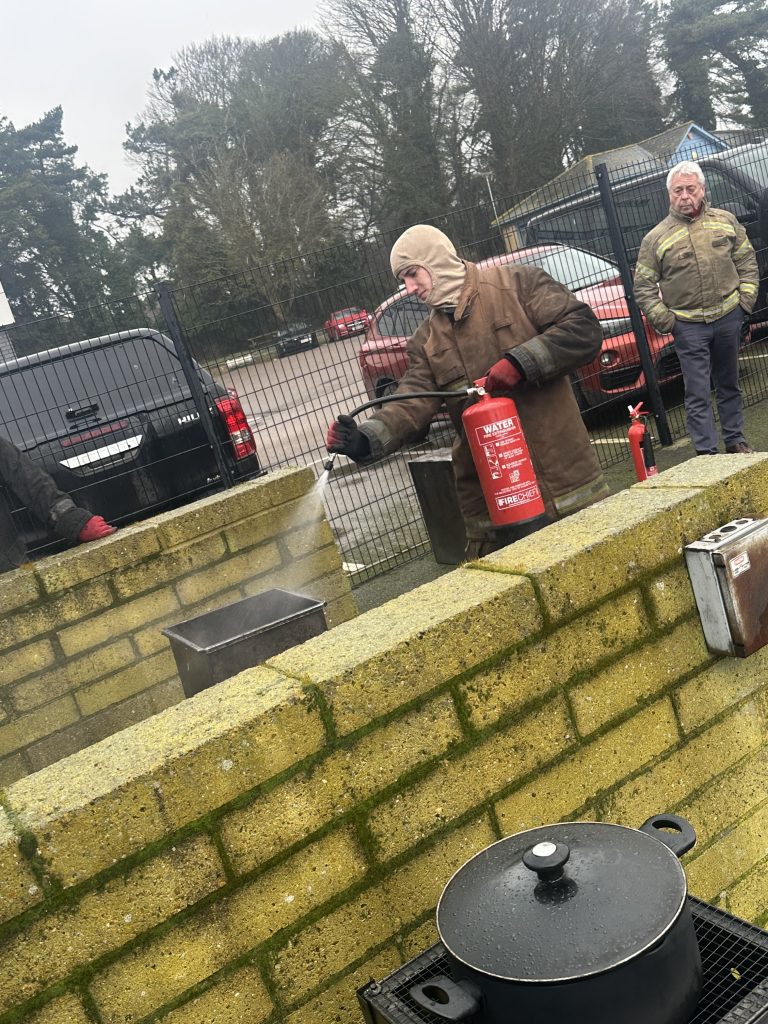
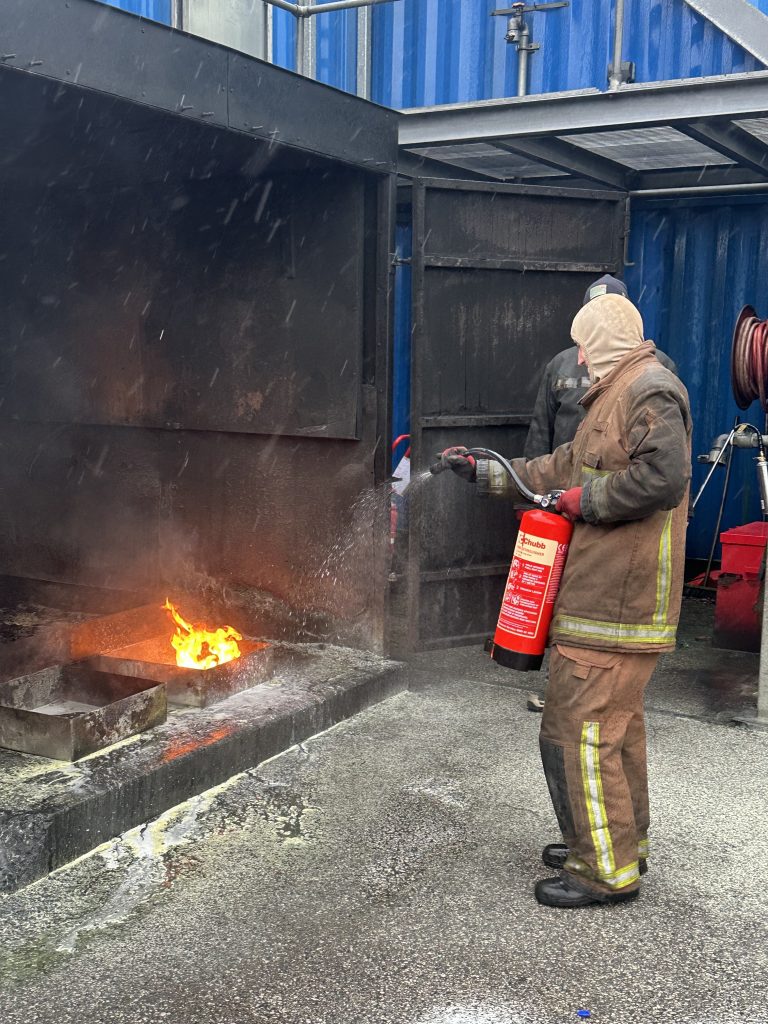
Has your experience at the MSA been different from what you expected?
I wasn’t expecting the fire procedures and classes to be as detailed as they were; I thought they [the courses] would be more theoretical than practical—experiencing real situations. All the practices in themselves were very detailed and realistic. Although you’re not at sea and in real firefighting situations, you are putting out actual fires in real-life scenarios.
Which skills have you gained from the 4-Part STCW Basic Safety Training?
I’ve learnt skills for life, such as CPR, what to do if you go overboard, and how to treat a casualty choking or with an injury that needs bandaging.
If I hadn’t completed this course, I wouldn’t have had a clue how to help someone effectively. It’s nice to know that I can try to help [someone] if something were to happen.
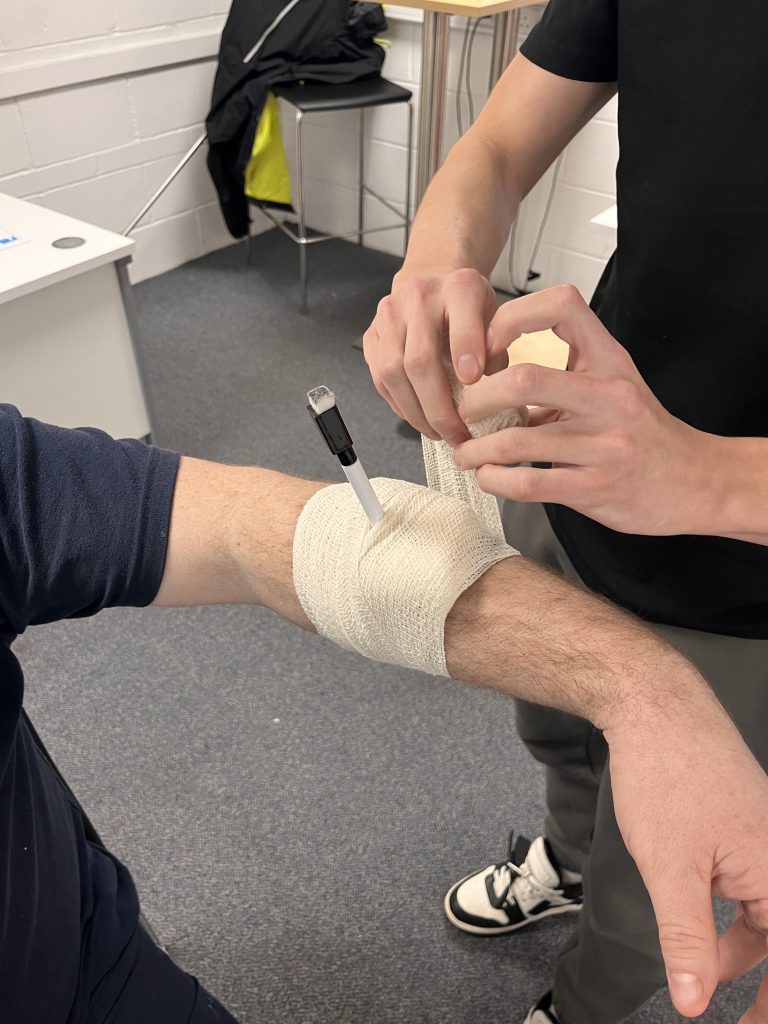
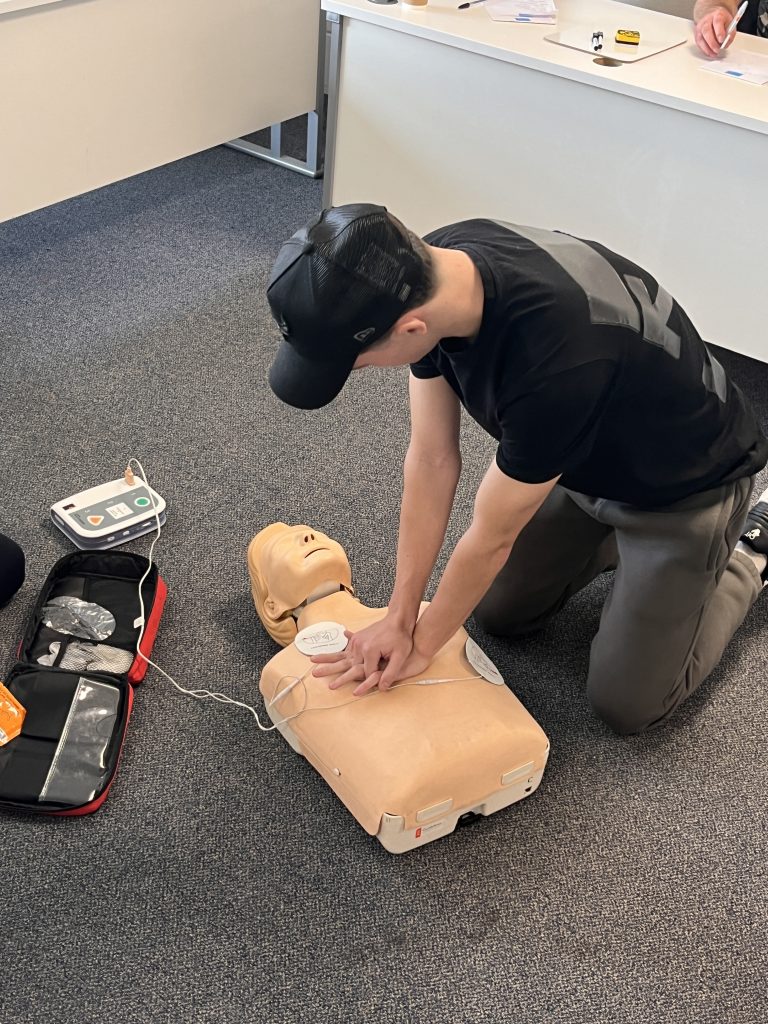
Have the instructors helped make the training engaging and useful?
The mix of [the instructors’] personalities and how some of them used humour or their wisdom from experience to teach the course is engaging, as it’s not just reading course material off the board.
They’re demonstrating and explaining at the same time, going into exact detail about why you need to do this and why that happens. It’s good to say, “You need to do this to keep someone alive”, but the trainers explained why you need to do that to keep someone alive. As a result, you’re more engaged with it [the lessons] because you’re curious and want to learn more.
Can you share a specific moment where you felt you learned something valuable?
On day five (Elementary First Aid), learning CPR and how to use an AED (automated external defibrillator), you can use that in any scenario; it doesn’t just have to be on board.
I now feel more confident about performing CPR instead of just winging it. I would try and help, whereas I probably wouldn’t have before.
What’s been the most challenging part of your training? How did you overcome it?
It’s not to say everything this week was easy, but the workload in the practicals was a challenge. When you’re firefighting, it’s hot, and you’ve got a heavy cylinder on your back, but if I had gone in there without training, it would have been even more challenging.
During the Personal Survival Techniques training course (PST), the physical side was more challenging, but we were taught how to do the exercises in the most effective way.
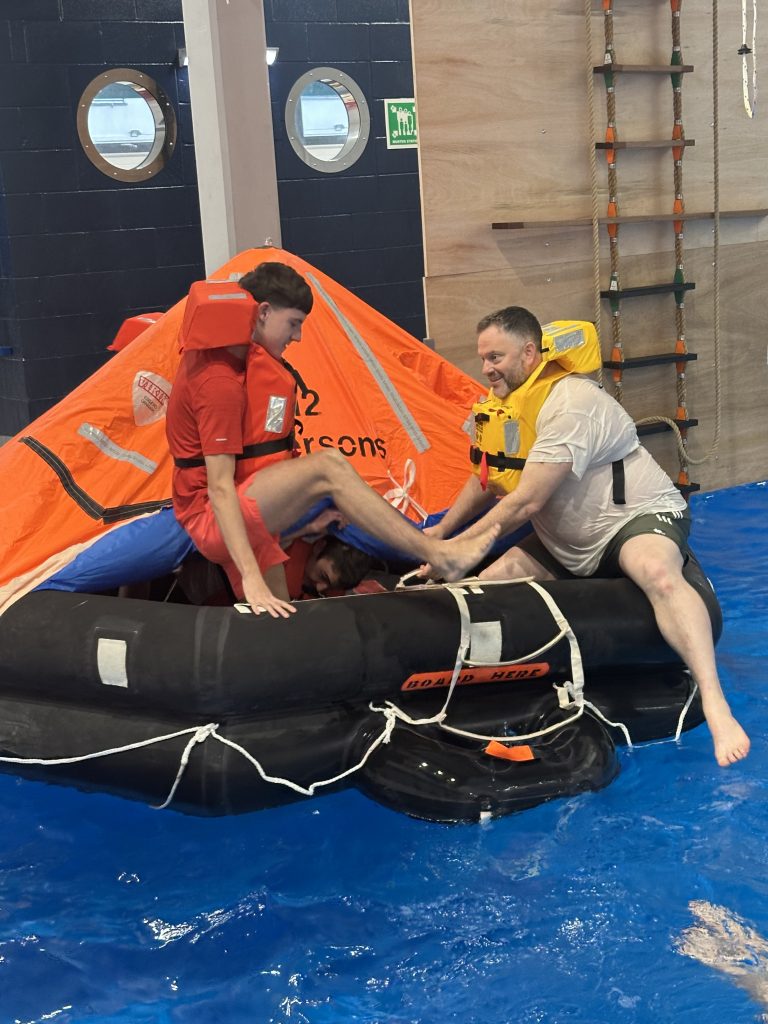
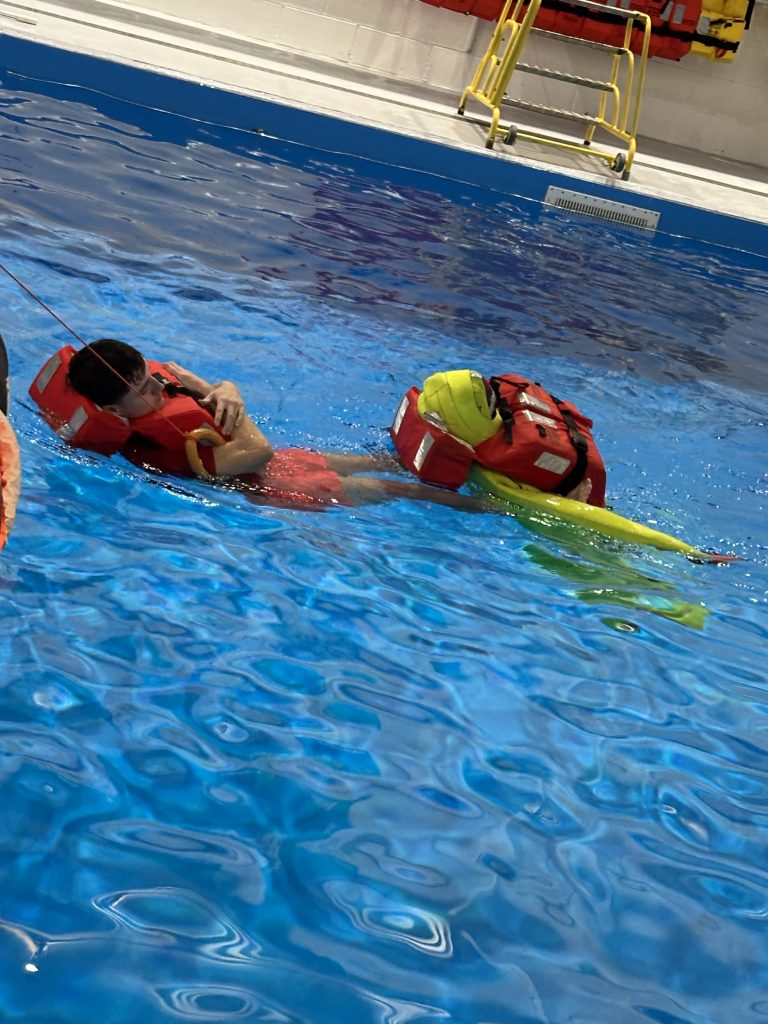
What role or career path are you hoping to pursue, having completed your training?
I love football, but I’ve got a big interest in this side of the world now and working at sea. I like the idea of working as a deckhand on a superyacht, and I’ve always wanted to travel — with a job like that, it’s a requirement. Although you are working, you’re also travelling the world, so you can’t really complain!
Would you recommend the MSA to others, and if so, why?
I’d definitely recommend the Maritime Skills Academy to others. A career at sea isn’t as well-known an option as it should be. I would never have known about the training needed to work at sea before six months ago, and my friends and family hadn’t considered a career at sea either, as I was explaining to them that I would be completing this course. However, I’d recommend it, and everything has been perfect. There hasn’t been anything that I thought could’ve been better. Everything went really well.
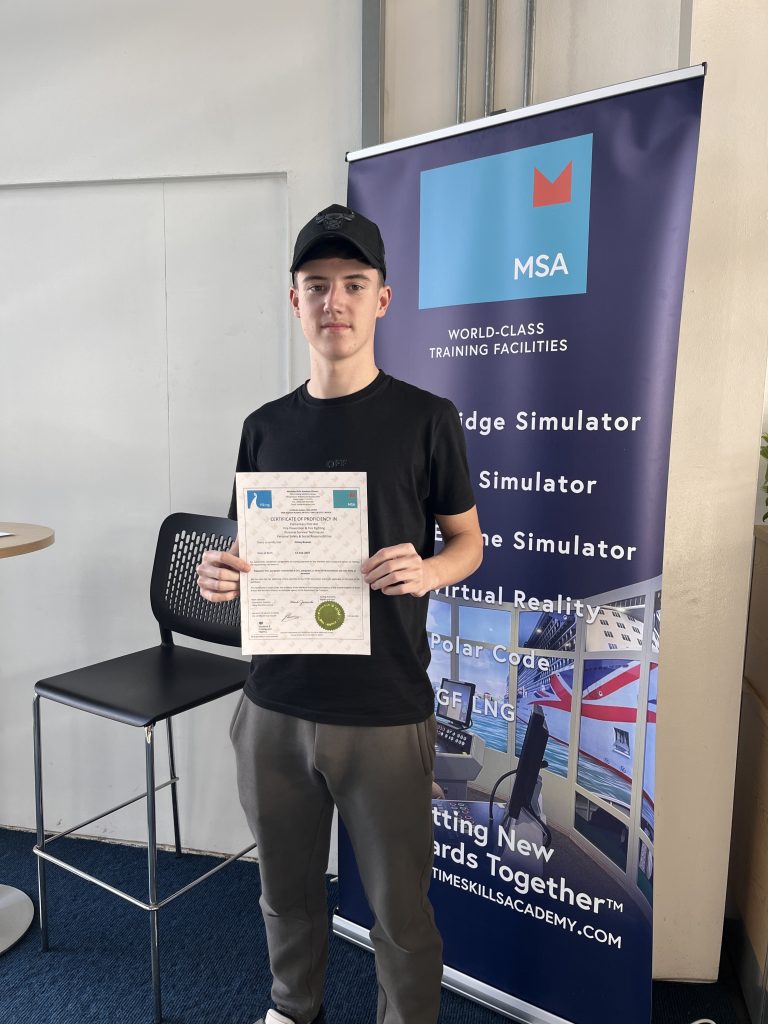
Maritime Safety Instructor Stuart Warters said of Finn’s experience at the MSA, “[He] took everything in and was always engaged with the courses. Finn demonstrated everything we needed him to do and by the end of the week, he had really improved in confidence.”
If you’ve completed one of our training courses, at either our Dover or Portsmouth facility and would like to leave some feedback or write about your experience, contact our team today at Marketing@vikingmaritime.co.uk
